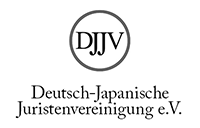Erweiterung der Beschäftigungsformen und aktuelle Entwicklung des Arbeitsrechts in Japan
Abstract
Types of employment have become more and more diversified in Japan recently, but regular employment still plays a dominant role. More than 55 percent of all employed workers are regular employees. The number of self-employed has drastically decreased because agriculture has continued to decline since the end of World War II. More recently, production bases have been transferred to China, and the regulation of the distribution sector has forced small retailers out of business. At the same time, more attention has been paid to the growth of economically dependent self-employed – such as telework or franchising – but so far such “disguised dependence” (Scheinselbständigkeit) has not been investigated. Outsourcing has also increased. The number of employees of outsourced firms in production is estimated to be about one million. This is the result of prohibitions against laying off workers in the industrial sector. According to the Labor Standards Law of Japan, an employee is defined as someone with “personal dependency” (persönliche Abhängigkeit), but the law is broader in scope than German labor laws. In Japan it is not only the duty of a contract worker to obey the orders of his consignor, but economic factors, such as whether workers possess tools of their own or own the organization, are also considered in determining whether the worker in question is an employee or is self-employed. The definition of an employee has not fundamentally changed, but the recent judgment of the High Court of Tokyo, which recognized a freelance cameraman as an employee, shows that, to some extent, labor laws are necessary to protect the economically dependent self-employed.
Since the 1990s, the depression has created job insecurity, especially for older and younger workers. Now the growth of “freeters”, who do not obtain regular jobs after graduation from universities or high schools, has become a serious problem. In Japan the expectations of long-term employment from both parties of an employment contract are becoming lower. Long-term employment means that a firm recruits new graduates every April, gives them on-the-job training, makes them compete against each other, and demands that they pledge their loyalty to the firm. In return the firm gives them job security until retirement age (usually age 60). With the recent depression and global competition, such job security cannot be taken for granted. However, Japanese employment practices and labor laws are still based on this system of long-term employment. The most important characteristic is the great difference in the terms of employment between regular and non-regular employees. The average wage of part-time employees is less than 60 percent that of regular employees. Non-regular employees are usually part-time and/or fixed-term workers, but there are many non-regular employees who do the same work and work the same hours as regular employees. This is known as “quasi-part-time” (giji-pâto). In 1996 the District Court of Nagano Ueda branch decided that when the wage of non-regular workers is less than 80 percent that of regular workers performing the same work, the permissible extent of wage differences has been exceeded and contravenes public order and good morals. This judgment was epochal and, in 2002, the Ministry of Health, Labor and Welfare announced a policy for the fair treatment of part-time workers. However, in the same year, the District Court of Osaka decided that the 30 per cent disparity of wages between regular and non-regular truck drivers was legal.
Once graduates fail to obtain regular employment, they risk losing opportunities for career development and obtaining a respectable social status. For this reason, job insecurity among the young is a very serious problem in Japan. In 2003 the provisions for laying off workers and fixed-term contracts were deregulated. Now the prohibition against dispatching in the production sector has been abolished. The upper limit for a fixed-term employment contract and a dispatching contract between a worker-dispatching agency and a client company is now three years. With this deregulation, one can expect that in this economically difficult environment better employment opportunities will be offered to graduates as a bridge to more regular employment. However, the concern for the growth of insecure employment is still valid.






